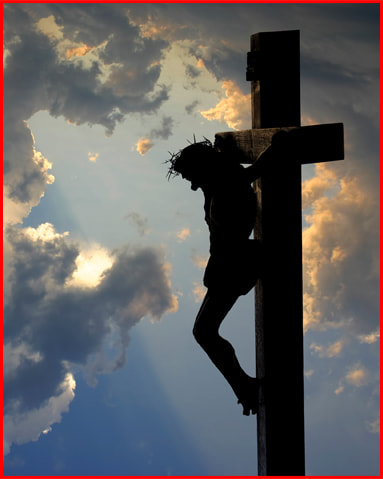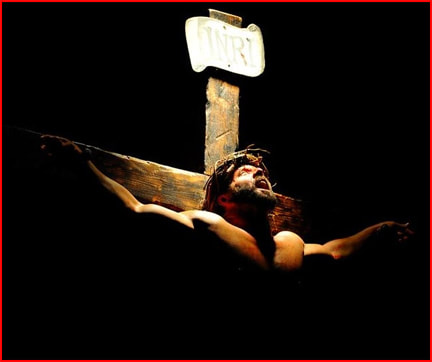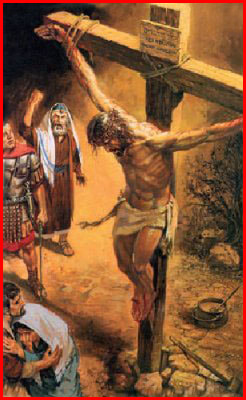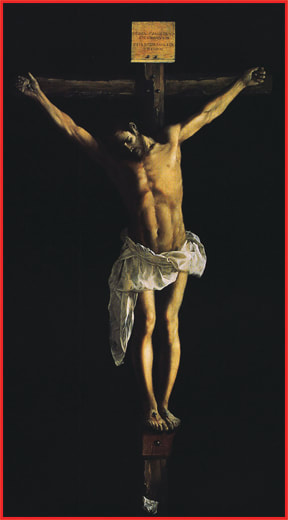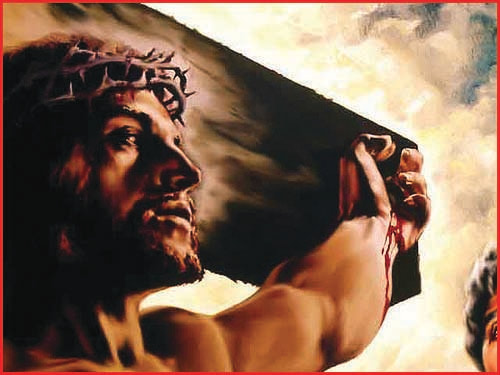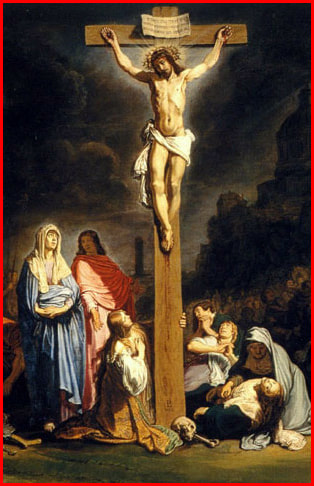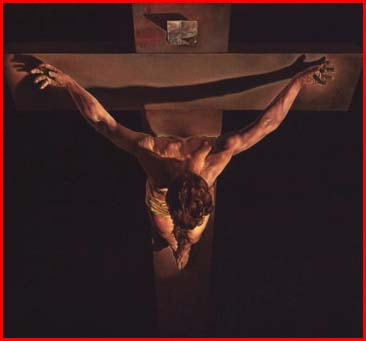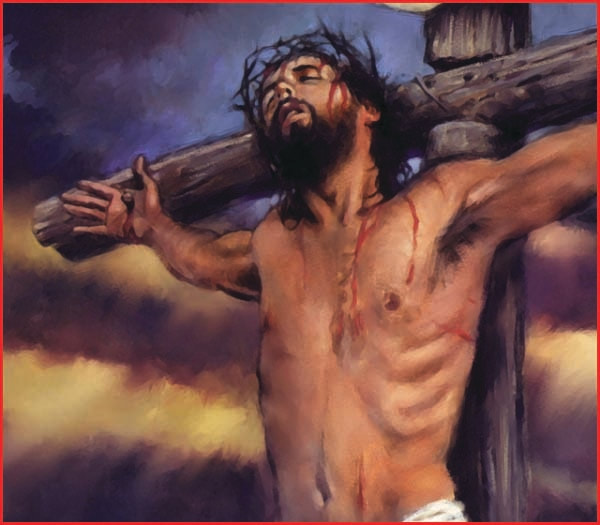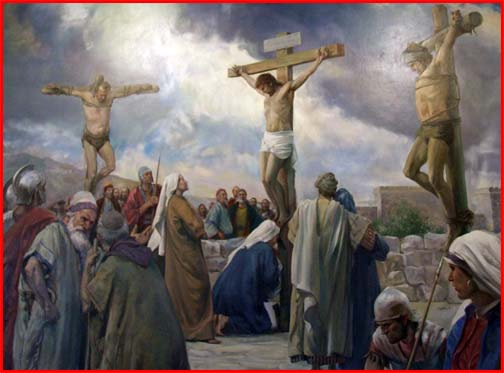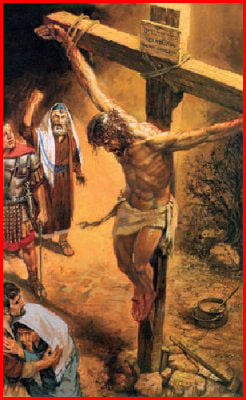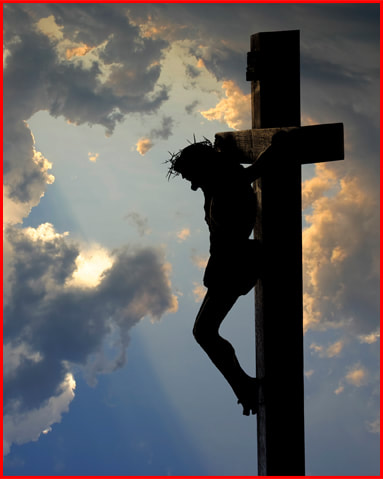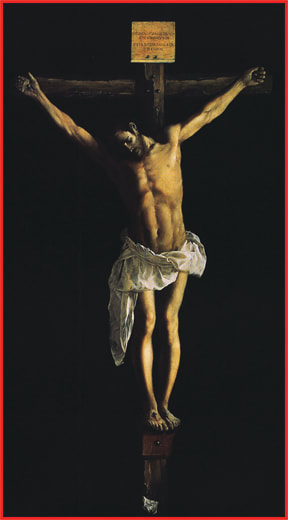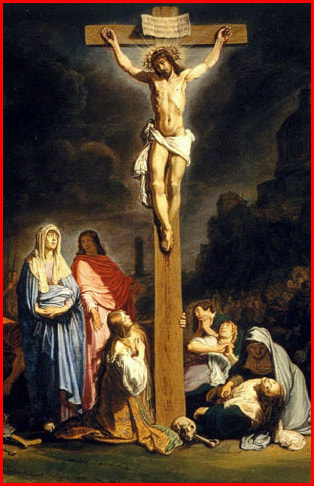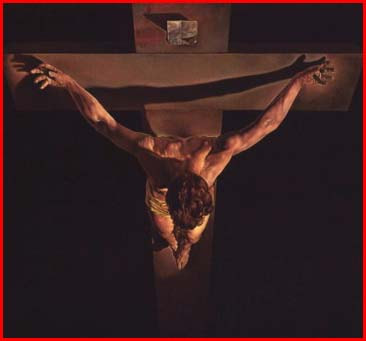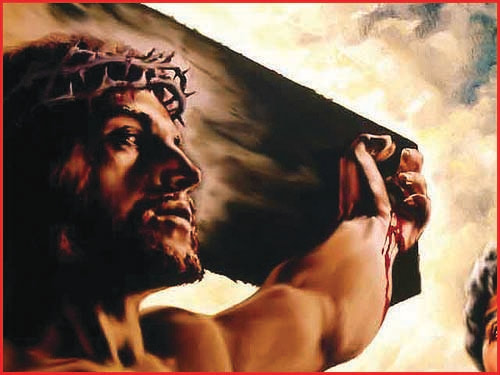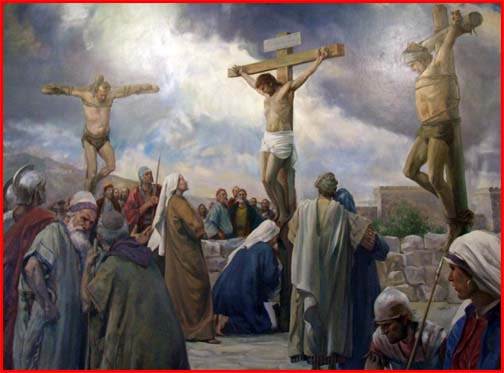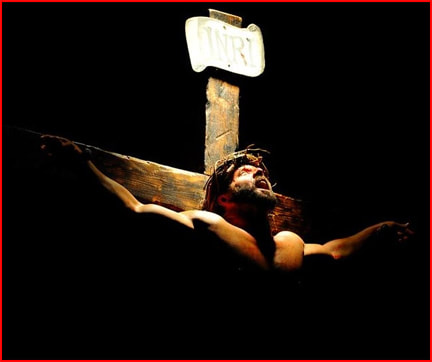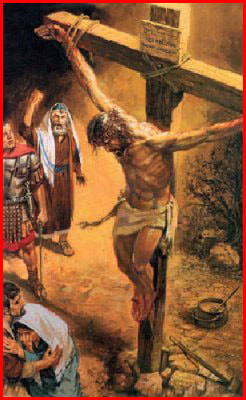| Devotion to Our Lady |
|
- Homepage
-
Daily Thoughts
- 2023 October Daily Thoughts
- Daily Thoughts Lent 2020
- Daily Thoughts for Advent 2019
- Daily Thoughts for October 2019
- Daily Thoughts for September 2019
- Daily Thoughts for August 2019
- Daily Thoughts for July
- Daily Thoughts for June
- Daily Thoughts for Easter 2019
- Daily Thoughts for Lent 2019
- Daily Thoughts for Christmas
- Daily Thoughts Easter 2022
- Sacred Heart
- Holy Ghost
-
Spiritual Life
- Holy Mass Explained
- First Friday Devotions
- First Saturday Devotions
- The Mercy of God
- Vocations
- The Path Everyone Must Walk >
- Gift of Failure
- Halloween or Hell-O-Ween?
- Ignatian Spiritual Exercises >
- Meditation is Soul-Saving
- Spiritual Communion
- Miraculous Medal
- Enrollment in Miraculous Medal
- St. Benedict Medal
- Holy Water
- Advice on Prayer
- Your Daily Mary
-
Prayers
- September Devotions
- Seven Sorrows of Our Lady
-
Novenas
>
- NV-Help of Christians
- NV-Nativity of Our Lady
- NV-Seven Sorrows
- NV- Sorrowful Heart
- NV-Pope St Pius X
- NV-La Salette
- NV-St Michael Archangel
- NV-Immaculate Heart
- NV-Assumption
- NV-Novena for Fathers
- NV-Novena for Your Mother
- NV-St Raphael Archangel
- NV-Souls in Purgatory
- NV-All Saints Day
- NV-Christ the King
- NV-Divine Motherhood
- NV-Guardian Angels
- NV-Rosary
- NV-Mirac Med
- NV- Imm Conc
- NV - Guadalupe
- NV - Nativity of Jesus
- NV-Epiphany
- NV-OL Good Success
- NV-Lourdes
- NV-St Patrick
- NV-St Joseph
- NV-Annunciation
- NV-St Louis de Montfort
- NV-OL Good Counsel
- NV-Last Supper
- NV-Passion
- NV-Pentecost
- NV-Ascension
- NV-Sacred Heart
- NV-Sacred Heart & Perpetual Help
- NV-Corpus Christi
- NV-OL of Perpetual Help
- NV-Queenship BVM
- NV-OL of Mount Carmel
- NV-St Mary Magdalen
- NV- Im Hrt
- August Devotions to IHM
- Immaculate Heart of Mary
- Litany of Dependence
- Prayers to St Mary Magdalen
- Prayers in Times of Sickness Disease & Danger
- Holy Souls in Purgatory
- Meditations on the Litany of Our Lady
- Special Feast Days
- Prayers to Mary (Mon-Sun)
- Litanies to Our Lady >
- Various & Special Needs
- Our Lady of the Rosary
- Our Lady of Mt. Carmel
- Our Lady of Perpetual Help
- Our Lady of Guadalupe
- Other titles of Our Lady
-
Rosary
- Downloads
- Consecration
- Easter Season
-
Holy Week
- Last Seven Words of Jesus >
- Characters of Passion >
- The Last Days of Christ
- Before Palm Sunday
- Palm Sunday
- Monday in Holy Week
- Tuesday in Holy Week
- Wednesday in Holy Week
- Holy Thursday (Last Supper)
- Holy Thursday (Agony & Arrest)
- Night Vigil with Christ
- Good Friday (Pilate & Herod)
- Good Friday (Way of Cross & Crucifixion)
- Saturday in Holy Week
-
Lent
- Ideas for Lent
- Daily Lenten Planner
- Daily Lenten Liturgy
- From Cold to Hot
- Lent with Aquinas
- Lent with Dom Gueranger
- Virtues for Lent
- History of Penance
- How Expensive is Sin?
- Confession of Sins
- Letter to Friends of the Cross
- Sermons for Lent
- Stations of the Cross >
- Lenten Prayers
- 7 Penitential Psalms
- Lenten Psalms SUN
- Lenten Psalms MON
- Lenten Psalms TUE
- Lenten Psalms WED
- Lenten Psalms THU
- Lenten Psalms FRI
- Lenten Psalms SAT
- Lenten Laughs
- Septuagesima
-
Christmas
- Epiphany Explained
- Suggestions for Christmas
- Food For Thought
- Christmas with Aquinas
- Christmas with Dom Gueranger
- Christmas Prayers
- Candles & Candlemas
- Christmas Sermons
- Christmas Prayers SUN
- Christmas Prayers MON
- Christmas Prayers TUE
- Christmas Prayers WED
- Christmas Prayers THU
- Christmas Prayers FRI
- Christmas Prayers SAT
- Twelve Days of Christmas >
-
Advent Journey
- Purgatory
- Christ the King
- Legion of Mary
- Scapular
-
Saints
-
Martyrs for the Faith
>
- Your Daily Martyr >
- All 365 Days of Martyrs
- Cristeros
- St Valentine & Valentine's Day
- Martyrs--Thomas Becket
- Martyrs--John the Apostle
- Holy Machabees
- Age of Martyrdom
- Carmelites of Compiegne
- Martyrs--Peter & Paul
- Martyrs--John the Baptist
- Martyrs--Andrew
- Martyrs--James the Great
- Martyrs--North American
- Martyrs--Seven Holy Sleepers
- Martyrs--Afra
- School of Martyrdom
- Martyrs--Christina
- Desert Saints >
- Saints for Sinners >
- Saints of Mary >
- History of All Saints Day
-
Martyrs for the Faith
>
- Precious Blood
- Synod 2023
-
Catechism
- Catechism Lesson 1
- Catechism Lesson 2
- Catechism Lesson 3
- Catechism Lesson 4
- Catechism Lesson 5
- Catechism Lesson 6
- Catechism Lesson 7
- Catechism Lesson 8
- Catechism Lesson 9
- Catechism Lesson 10
- Catechism Lesson 11
- Catechism Lesson 12
- Catechism Lesson 13
- Catechism Lesson 14
- Catechism Lesson 15
- Catechism Lesson 16
- Catechism Lesson 17
- Catechism Lesson 18
- Catechism Lesson 19
- Catechism Lesson 20
- Catechism Lesson 21
- Catechism Lesson 22
- Bible Study
-
Calendar
- Miracles
- Apparitions
- Shrines
- Prophecies
- Angels Homepage
- Hell
-
Church Crisis
- Conspiracy Theories
- Amazon Synod 2019 >
- Liberalism & Modernism
- Modernism--Encyclical Pascendi
- Modernism & Children
- Modernism--Documents
- The Francis Pages
- Church Enemies on Francis
- Francis Quotes
- Amoris Laetitia Critique
- Danger of Ignorance (Pius X)
- Restore all In Christ (Pius X)
- Catholic Action (Pius X)
- Another TITANIC Disaster?
- The "Errors of Russia"
- CRISIS PRAYERS
- Election Novena 2024
- The Anger Room
- War Zone
- Life of Mary
- Spiritual Gym
- Stupidity
- Coronavirus and Catholicism
- History & Facts
- Books
- Catholic Family
- Children
- Daily Quiz
-
Novena Church & Pope
- Day 01 Church-Pope Novena
- Day 02 Church-Pope Novena
- Day 03 Church-Pope Novena
- Day 04 Church-Pope Novena
- Day 05 Church-Pope Novena
- Day 06 Church-Pope Novena
- Day 07 Church-Pope Novena
- Day 08 Church-Pope Novena
- Day 09 Church-Pope Novena
- Day 10 Church-Pope Novena
- Day 11 Church-Pope Novena
- Day 12 Church-Pope Novena
- Day 13 Church-Pope Novena
- Day 14 Church-Pope Novena
- Day 15 Church-Pope Novena
- Day 16 Church-Pope Novena
- Day 17 Church-Pope Novena
- Day 18 Church-Pope Novena
- Day 19 Church-Pope Novena
- Day 20 Church-Pope Novena
- Day 21 Church-Pope Novena
- Day 22 Church-Pope Novena
- Day 23 Church-Pope Novena
- Day 24 Church-Pope Novena
- Day 25 Church-Pope Novena
- Day 26 Church-Pope Novena
- Day 27 Church-Pope Novena
- Day 28 Church-Pope Novena
- Day 29 Church-Pope Novena
- Day 30 Church-Pope Novena
- Day 31 Church-Pope Novena
- Day 32 Church-Pope Novena
- Day 33 Church-Pope Novena
- Day 34 Church-Pope Novena
- Day 35 Church-Pope Novena
- Day 36 Church-Pope Novena
- Day 37 Church-Pope Novena
- Day 38 Church-Pope Novena
- Day 39 Church-Pope Novena
- Day 40 Church-Pope Novena
- Day 41 Church-Pope Novena
- Day 42 Church-Pope Novena
- Day 43 Church-Pope Novena
- Day 44 Church-Pope Novena
- Day 45 Church-Pope Novena
- Day 46 Church-Pope Novena
- Day 47 Church-Pope Novena
- Day 48 Church-Pope Novena
- Day 49 Church-Pope Novena
- Day 50 Church-Pope Novena
- Day 51 Church-Pope Novena
- Day 52 Church-Pope Novena
- Day 53 Church-Pope Novena
- Day 54 Church-Pope Novena
- Penance Novena
- Daily WeAtheR Forecast
The Greatest and Most Important Week in the Church's Liturgical Year
CLICK ON ANY HOLY WEEK LINK BELOW
Also lots of LENTEN & HOLY WEEK DOWNLOADS on the downloads page (click here)
LITURGICAL PRAYERS FOR EACH DAY OF THE WEEK DURING LENT
| Sundays of Lent | Mondays of Lent | Tuesdays of Lent | Wednesdays of Lent | Thursdays of Lent | Fridays of Lent | Saturdays of Lent |
HOLY WEEK PAGES
| Daily Thoughts | Holy Week Main Page | Before Palm Sunday | Palm Sunday | Last Days of Christ |
| Holy Thursday Last Supper Novena | Good Friday Passion Novena |
| Monday of Holy Week | Tuesday of Holy Week | Wednesday of Holy Week | Holy Thursday (Last Supper) | Holy Thursday (Agony & Arrest) |
| Night Vigil With Christ | Good Friday (Pilate & Herod) | Good Friday (Way of Cross & Crucifixion) | Holy Saturday |
THE CHIEF CHARACTERS OF THE PASSION
| Characters of the Passion Mainpage | The Sanhedrin | Pharisees | Scribes | Saducees | Jewish Crowd | Roman Rulers |
| Judas | Annas & Caiphas | Pontius Pilate | Herod | Barabbas | Dismas the Good Thief | St. Peter | St. John | Mary Magdalen |
THE FOURTEEN STATIONS OF THE CROSS
| Introduction to the Stations of the Cross | Short Version of the Stations of the Cross (all 14 on one page) | 1st Station | 2nd Station | 3rd Station |
| 4th Station | 5th Station | 6th Station | 7th Station | 8th Station | 9th Station | 10th Station | 11th Station | 12th Station | 13th Station | 14th Station |
THE LAST SEVEN WORDS OF JESUS FROM THE CROSS
| Seven Last Words on the Cross (Introduction) | The 1st Word on the Cross | The 2nd Word on the Cross | The 3rd Word on the Cross |
| The 4th Word on the Cross | The 5th Word on the Cross | The 6th Word on the Cross | The 7th Word on the Cross |
PRAYERS AND DEVOTIONS TO THE SEVEN SORROWS OF OUR LADY
| Seven Sorrows Meditations | Short Prayers & Short Seven Sorrows Rosary | Longer Seven Sorrows Rosary |
| 1st Sorrow of Our Lady | 2nd Sorrow of Our Lady | 3rd Sorrow of Our Lady | 4th Sorrow of Our Lady |
| 5th Sorrow of Our Lady | 6th Sorrow of Our Lady | 7th Sorrow of Our Lady |
| Novena #1 to the Sorrowful Heart of Mary | Novena #2 to the Sorrowful Heart of Mary |
LENTEN PAGES
| ASH WEDNESDAY COUNTDOWN | LENT (MAIN PAGE) | DAILY THOUGHTS | DAILY LENTEN LITURGY | DAILY LENTEN PLANNER |
| LENTEN PRAYERS | THE 7 PENITENTIAL PSALMS | IDEAS FOR PENANCE | LENT WITH AQUINAS | LENT WITH DOM GUERANGER |
| HISTORY OF PENANCE | PENANCES OF THE SAINTS | HOW EXPENSIVE IS SIN? | CONFESSION OF SINS | ARE FEW SOULS SAVED? |
| VIRTUES FOR LENT | FROM COLD TO HOT | LENTEN LAUGHS | SERMONS FOR LENT | LETTER TO FRIENDS OF THE CROSS |
| STATIONS OF THE CROSS (INDIVIDUALLY) | ALL 14 STATIONS OF THE CROSS |
| THE LAST DAYS OF CHRIST | SPECIAL HOLY WEEK PAGES |
CLICK ON ANY HOLY WEEK LINK BELOW
Also lots of LENTEN & HOLY WEEK DOWNLOADS on the downloads page (click here)
LITURGICAL PRAYERS FOR EACH DAY OF THE WEEK DURING LENT
| Sundays of Lent | Mondays of Lent | Tuesdays of Lent | Wednesdays of Lent | Thursdays of Lent | Fridays of Lent | Saturdays of Lent |
HOLY WEEK PAGES
| Daily Thoughts | Holy Week Main Page | Before Palm Sunday | Palm Sunday | Last Days of Christ |
| Holy Thursday Last Supper Novena | Good Friday Passion Novena |
| Monday of Holy Week | Tuesday of Holy Week | Wednesday of Holy Week | Holy Thursday (Last Supper) | Holy Thursday (Agony & Arrest) |
| Night Vigil With Christ | Good Friday (Pilate & Herod) | Good Friday (Way of Cross & Crucifixion) | Holy Saturday |
THE CHIEF CHARACTERS OF THE PASSION
| Characters of the Passion Mainpage | The Sanhedrin | Pharisees | Scribes | Saducees | Jewish Crowd | Roman Rulers |
| Judas | Annas & Caiphas | Pontius Pilate | Herod | Barabbas | Dismas the Good Thief | St. Peter | St. John | Mary Magdalen |
THE FOURTEEN STATIONS OF THE CROSS
| Introduction to the Stations of the Cross | Short Version of the Stations of the Cross (all 14 on one page) | 1st Station | 2nd Station | 3rd Station |
| 4th Station | 5th Station | 6th Station | 7th Station | 8th Station | 9th Station | 10th Station | 11th Station | 12th Station | 13th Station | 14th Station |
THE LAST SEVEN WORDS OF JESUS FROM THE CROSS
| Seven Last Words on the Cross (Introduction) | The 1st Word on the Cross | The 2nd Word on the Cross | The 3rd Word on the Cross |
| The 4th Word on the Cross | The 5th Word on the Cross | The 6th Word on the Cross | The 7th Word on the Cross |
PRAYERS AND DEVOTIONS TO THE SEVEN SORROWS OF OUR LADY
| Seven Sorrows Meditations | Short Prayers & Short Seven Sorrows Rosary | Longer Seven Sorrows Rosary |
| 1st Sorrow of Our Lady | 2nd Sorrow of Our Lady | 3rd Sorrow of Our Lady | 4th Sorrow of Our Lady |
| 5th Sorrow of Our Lady | 6th Sorrow of Our Lady | 7th Sorrow of Our Lady |
| Novena #1 to the Sorrowful Heart of Mary | Novena #2 to the Sorrowful Heart of Mary |
LENTEN PAGES
| ASH WEDNESDAY COUNTDOWN | LENT (MAIN PAGE) | DAILY THOUGHTS | DAILY LENTEN LITURGY | DAILY LENTEN PLANNER |
| LENTEN PRAYERS | THE 7 PENITENTIAL PSALMS | IDEAS FOR PENANCE | LENT WITH AQUINAS | LENT WITH DOM GUERANGER |
| HISTORY OF PENANCE | PENANCES OF THE SAINTS | HOW EXPENSIVE IS SIN? | CONFESSION OF SINS | ARE FEW SOULS SAVED? |
| VIRTUES FOR LENT | FROM COLD TO HOT | LENTEN LAUGHS | SERMONS FOR LENT | LETTER TO FRIENDS OF THE CROSS |
| STATIONS OF THE CROSS (INDIVIDUALLY) | ALL 14 STATIONS OF THE CROSS |
| THE LAST DAYS OF CHRIST | SPECIAL HOLY WEEK PAGES |
THE THIRD WORD
Woman, behold thy son! Son, behold thy Mother!
Woman, behold thy son! Son, behold thy Mother!
|
BLESSED ANNE CATHERINE EMMERICH
The Dolorous Passion of Our Lord Jesus Christ Magdalen, Mary of Cleophas, and John stood near the Cross of our Lord and looked at him, while the Blessed Virgin, filled with intense feelings of motherly love, entreated her Son to permit her to die with Him; but he, casting a look of ineffable tenderness upon her, turned to John and said, “Woman, behold thy Son!” then He said to John, “Behold thy mother!” John looked at his dying Redeemer, and saluted this beloved mother (whom he henceforth considered as his own) in the most respestful manner. The Blessed Virgin was so overcome by grief at these words of Jesus that she almost fainted, and was carried to a short distance from the Cross by the holy Women. I felt interiorly that he gave Mary to John as a mother, and John to Mary as a son. In similar visions a person is often conscious of such things which are not written, and words can only express a portion of them, although to the individual to whom they are shown they are so clear as not to require explanation. For this reason it did not appear to me in the least surprising that Jesus should call the Blessed Virgin “Woman,” instead of “Mother.” I felt that He intended to demonstrate that she was that woman, spoken of in Scripture, who was to crush the head of the serpent, and that then was the moment in which that promise was accomplished in the death of her Son. I knew that Jesus, by giving her as a mother to John, gave her also as a mother to all who believe in Him, who become children of God, and are not born of flesh and blood, or of the will of man, but of God. Neither did it appear to me surprising that the most pure, the most humble, and the most obedient among women, who, when saluted by the angel as “full of grace.” immediately replied, “Behold the handmaid of the Lord, be it done to me according to thy word,” and in whose sacred womb the Word was instantly made flesh—that she, when informed by her dying Son that she was to become the spiritual mother of another son, should repeat the same words with humble obedience, and immediately adopt as her children all the children of God, the brothers of Jesus Christ. These things are much easier to feel by the grace of God than to be expressed in words. I remember my celestial Spouse once saying to me, “Everything is imprinted in the hearts of those children of the Church who believe, hope, and love.” VENERABLE MARY OF AGREDA The Mystical City of God At the third word spoken by the Lord to his Mother: “Woman, behold thy son!” the demons discovered that this heavenly Lady was the true Mother of the Godman, the same Woman whose likeness and prophetic sign had been shown to them in the heavens at their creation, and who was to crush their head as announced by the Lord in the terrestrial paradise. They were informed of the dignity and excellence of this great Lady over all creatures, and of her power which they were even now experiencing. As they had from the beginning of the world and from the creation of the first woman, used all their astuteness to find out who this great woman that was announced in the heavens could be, and as they now discovered her in Mary, whom they had until now overlooked, these dragons were seized with inexpressible fury; their having been thus mistaken, crushed their arrogance beyond all their other torments, and in their fury they raged against their own selves like bloodthirsty lions, while their helpless wrath against the heavenly Lady was increased a thousand fold. Moreover, they discerned that St. John was appointed by Christ our Lord as the angel guardian of his Mother, endowed with the powers of the priesthood. This they understood to be in the nature of a threat against their own wrath, which was well known to St. John. Lucifer saw, not only the power of the Evangelist, but that given to all the priests, in virtue of their participation in the dignity and power of our Redeemer; and that the rest of the just, even though not priests, were placed under the special protection of the Lord and made powerful against Hell. All this paralyzed the strength of Lucifer and his demons. FR. ALBAN GOODIER The Passion and Death of Our Lord Jesus Christ By this time the crowd, as is the tendency of crowds, was becoming weary of its own ribaldry. We have noticed how throughout the morning its number could never have been overwhelming; during all this turmoil in the upper quarter of the city, business in the streets went on as before. Since the final condemnation by Pilate the mob had dwindled still more; the morning was advancing, there was much to be done that day, the chief interest in this trial was over, many did not care to be involved in what was to follow. Hence the crowd around Calvary soon became less turbulent; there was a lull, and the hours began to drag as the onlookers waited for the end. The guard became less careful; they had done their work, which could not be undone, and it mattered little now who approached the criminals. Gradually a group drew near. It consisted chiefly of women; among them St. John mentions three, or it may be four. “Now there stood by the cross of Jesus, His mother, and his mother's sister Mary of Cleophas, and Mary Magdalen.” We might dwell long on the composition of this group, and the forces that brought them to witness this scene of horror. That His mother should be there does not surprise us, though we may well wonder that such a thing could have been permitted by the most callous of men; a mother, and such a mother, witnessing her Son, and such a Son, bleeding to death before her eyes, dying as a common criminal, with blasphemies hurtling around her, and she could do nothing. It had come at last. During all the three-and-thirty years before she had known that the end would be something terrible. She had never forgotten what the holy man had said, that day when, in accordance with the Law, she had offered Him to the Father in the Temple: “And Simeon blessed them and said to Mary, His mother: ‘Behold this Child is set for the fall and for the resurrection of many in Israel; and for a sign which shall be contradicted; and thy own soul a sword shall pierce, that, out of many hearts, thoughts may be revealed” (Luke 2:34-35). She had fled with that Child away into a foreign land, with bloodshed in her wake; almost from the first the joy of motherhood had been marred by this agony. Her own Child's life had brought death to many children, desolation to many mothers. She had brought Him back from exile in fear and trembling, longing to live in Bethlehem, the home of David, but they dared not; hiding at last in Nazareth, the village of no repute, lest evil men might again discover Him and seek His life. Once she had lost Him for part of three days; the memory of that could never be forgotten, it remained as a warning to her, a foreshadowing, of the greater separation that one day must be. Always she had kept it in mind, pondering it in her heart ; always she had feared when and how the end would come. This woman of few words but deep understanding had often prayed: “Father, if it be possible, let this chalice pass from me”; but not before she had also said: “Behold the handmaid of the Lord, be it done to me according to Thy word…Not my will, but Thine be done.” When at length after thirty years He had left her, and had gone out to preach the kingdom, her agony had only increased. Indeed she had long since seen what the inevitable end would be; she had no delusions, like those of the Apostles, concerning the founding of a Kingdom. If one such as Judas foresaw the coming doom, Mary, the lover of humanity, foresaw it even more. She who had read the Scriptures so well, could not fail to have discovered the repeated warnings concerning her Son. Still she had followed wherever He had led; silently waiting, silently watching, pierced to the heart by every rejection till the last rejection should come. She had followed Him in this last journey to Jerusalem, and now even to Calvary, knowing that so it must be. And it had come at last, here, in this terrible way; and she, the mother who had nursed Him and clothed Him as a Child, could only stand there and do nothing. He saw His mother standing before Him, the valiant woman, erect, motionless, almost expressionless, with scarce a tear in her eye. There are griefs that lie too deep for tears, and a mother's broken heart is one. If Jesus could say: “The Father and I are one”, He could say something akin of His relation with His mother. If He could pray, for His own whom He had chosen, that “They all may be one in Me”, and could ask that where He was they also might be with Him, among them all of none was this more true than of His chosen mother. If He could say: “Greater love than this no man hath that he lay down his life for his friend”, He knew that in no one could this be more proved than in His mother. She had given Him life; she had lived wholly for Him, the handmaid of the Lord; gladly now would she die for Him. Not only would she gladly die; during these three-and-thirty years they had so lived together, their lives had been so intertwined, the union of mother and son, of son and mother, had been so complete, that, if we speak of nature only, even in death they would not be separated. We have known of those, who in life have so grown together, that the death of one has been the death of the other. We have known of those whose death has been so terrible that it has caused the death of another. Both of these were being illustrated here. With His death the mother's life was surely ended; seeing Him die this awful death, when the moment came how could she but die with Him? But Jesus would not have that to be; Mary's hour was not yet come. Though He died for many, yet would He have her live for many, “that out of many hearts thoughts might be revealed.” There was work yet to be done by her in this valley of tears, and for the sake of that work He would have her live in it yet a little longer. Then must He devise some means to save her. Without Him her life would be a lonely life, lonely unto death unless some object worthy of her love were given to her. He must fill up the void in that mother's heart which His own death would inevitably make; He must transfer that mighty mother's love to another, give her a foster-child, whom she might cherish, and who in his turn might cherish her, when He was gone. There was John at her side; John, whom He had loved with a special love, whom also He had held to His heart. He would give them to each other. “When Jesus, therefore, saw His Mother and the disciple standing, whom He loved, He said to His Mother: ‘Woman, behold thy son!’ After that He saith to the disciple: ‘Behold thy Mother!’ And from that hour the disciple took her to his own.” The gift of John to Mary, and of Mary to John, was the last will and testament of Jesus Christ Our Lord. His life He had already given; His blood He was now pouring out, to its last drop, for all men. In this last gift He gave the only possession that remained; He bestowed on Mary the motherhood of all mankind, He bestowed on men His own Mother, to be theirs, like His Father, through all the coming ages. The type had been fulfilled; Mary, the new mother of men, was made the second Eve. This was the first-fruit of His blood-shedding. From the Cross He completed His last will and testament. He had already committed His blood to the Church, His garments to His enemies, a thief to Paradise, and would soon commend His body to the grave and His soul to His Heavenly Father. To whom, then, could He give the two treasures which He loved above all others, Mary and John? He would bequeath them to one another, giving at once a son to His Mother and a Mother to His friend. "Woman!" It was the second Annunciation! The midnight hour, the silent room, the ecstatic prayer had given way to the mount of Calvary, the darkened sky, and a Son hanging on a Cross. Yet, what consolation! It was only an angel who made the first Annunciation, but it is God's own sweet voice which makes the second. (The Passion and Death of Our Lord Jesus Christ, Fr. Alban Goodier) MEDITATION From Nazareth to Bethlehem to Calvary "Behold your son!" It was the second Nativity! Mary had brought forth her Firstborn without labor, in the cave of Bethlehem; she now brings forth her second-born, John, in the labors of the Cross. At this moment Mary is undergoing the pains of childbirth, not only for her second-born, who is John, but also for the millions who will be born to her in Christian ages as "Children of Mary." Now we can understand why Christ was called "her First-born." It was not because she was to have other children by the blood of flesh, but because she was to have other children by the blood of her heart. Truly, indeed, the Divine condemnation against Eve is now renewed against the new Eve, Mary, for she is bringing forth her children in sorrow. Mary, then, is not only the Mother of Our Lord and Savior, Jesus Christ, but she is also our Mother, and this not by a title of courtesy, not by legal fiction, not by a mere figure of speech, but by the right of bringing us forth in sorrow at the foot of the Cross. It was by weakness and disobedience at the foot of the tree of Good and Evil that Eve lost the title, Mother of the Living; it is at the foot of the tree of the Cross that Mary, by sacrifice and obedience, regained for us the title, Mother of the Living. What a destiny to have the Mother of God as my Mother and Jesus as my Brother! A Mother at a Deathbed Any mother worthy of the name suffers greatly at the deathbed of her child, especially if the dying child is in great pain. The mother, in her understanding and tender feeling, knows just what the child is going through, and she endures each pain with him. Quite often a good mother may say that she would rather suffer the pain herself than have her child suffer. Actually, both suffer, mother and child. The child suffers the physical pain in the body; the mother endures the same pain in her heart. The more love there is present, the more pain. This is what happened on Calvary. Mary endured in her heart all that Christ suffered on the Cross. The measure of her love was the measure of her pain. We are not making any mistake in saying that no mother ever loved a child as Mary loved her Son. This is no mistake, because we know that no womanly heart was ever better made for loving than Mary's, and we know that no Son could ever inspire or deserve more love than Our Lord. The purest, most unselfish souls can love best and suffer most. So we cannot really understand the depth of sorrow that was Mary's, because we do not have her selfless love. We can understand her interior martyrdom only in accord with the selfless love and sympathy of which our own souls are capable. Our general idea of what Mary went through will depend on our own depth of spirit. In her heart, Our Lady felt the cutting words of mockery and derision. The hammer blows of the nails in the hands and feet rung in her head. As Our Lord moved in agony on the Cross, Mary endured the pain in her heart. Of both Christ and Mary we can use the words of Jeremias: "O all ye that pass by the way, attend, and see if there be any sorrow like to my sorrow." (Lamentations 1:12). Christ Willed It St. Robert Bellarmine says that Our Lord willed that His Mother be present in His hour of infamy, shame and suffering in order to add to His own sufferings. He could have arranged things in such a way as to spare her this sorrow. But He did not spare her, nor did He spare Himself. To have her witness His last hours added to His own sufferings. We can understand this readily by asking ourselves what we would do to prevent someone dear from seeing us suffer. Many times people, especially if living at a distance, will go through operations and much sickness, and only when it is all over do they write to inform their relatives. Their idea is to spare those near and dear the pain of going through it with them and the worry about recovery. Our Lord could have spared Himself and His Mother the mutual grief of Good Friday, but He did not. The Dying Son Provides No, Mary was present at the Cross, and she was present in the mind of her Son. In the midst of accomplishing mankind's redemption, the Son did not forget to provide for His mother's future years on earth. He did not have insurance to leave, nor any material wealth. "The foxes have holes, and the birds of the air nests: but the son of man hath not where to lay his head." (Matthew 8:20). So He put His mother into the hands of a good friend. "Woman, behold thy son." And to St. John: "Behold thy mother." St. John in his Gospel says that from that hour he took her "to his own." According to the Franciscan tradition, the Blessed Virgin Mary lived until the age of 72 (others say around 64). Some of the time after Good Friday was spent at Jerusalem, some perhaps in Galilee to the north, some years at Ephesus. Finally, the Blessed Mother is said to have returned to Jerusalem, where she died. Historically speaking, however, it is difficult to be positive about these places, and likewise about her final age. We do know for certain that St. John took care of her, gladly fulfilling this sacred commission given to Him by the dying Saviour. The fact that Our Lord asked John to care for His Mother is a sure sign that St. Joseph had already died. It also is a strong proof that Mary had no other sons to look after her. If she had, St. John would not have been asked to stand in the place of a son to her. St. John's Unique Role St. John the Apostle was undoubtedly given a most wonderful treasure, a most enviable trust, when Mary was placed in his care. He might be called a second St. Joseph, since the duties of St. Joseph in caring for the Blessed Mother fell upon him. The fact that he, and not some other, received this charge was not by accident. He had the necessary qualities and virtues to receive such a sacred commission. St. Jerome says that it was especially in view of his virginity that he was chosen. The virgin Son gave the virgin Mother to a man who was a virgin. John is the one Apostle of whom we are sure that he was not married. He had chosen the state of virginity, most likely at the urging of the Master Himself. He was the beloved disciple, who at the Last Supper rested on the breast of Christ. St. John had been the favorite on other occasions. Along with Peter and James he had seen Jesus transfigured on Mt. Thabor. (Mark, chapter 9). He had, with the same two Apostles, been present in Gethsemani during Our Lord's agony. He and his brother James had been called by Our Lord the "Sons of Thunder," perhaps because of their zeal in wanting to call down vengeance on a town that would not receive Him. (Luke 9:54). Later, John was anything but a Son of Thunder, for he wrote lyrically of the love of God and neighbor, and in his old age he is said to have preached always the same sermon: "My little children, love one another." This, then, was the man favored so signally, the man to whom the Virgin Mother was committed on Calvary. He had already received many special favors, but nothing to match the mark of affection and confidence that went to him on the afternoon of the Redemption. Our Mother Too We might perhaps be inclined to a kind of holy "envy" of St. John the Apostle in receiving Mary to care for as his mother. But in reality we have all received her as our Mother. This beautiful, further interpretation of Christ's words has gained favor from at least the twelfth century; many popes have written of it as being the common belief of the Church. Christ's words without doubt were meant, in the first place, to provide for His Mother. But He was also leaving her to us as our Mother and asking her to look on all men as her children. John stood in our place; he represented mankind. All men were thus asked to look up to Mary as their spiritual Mother, and she in turn was asked to see in everybody her spiritual child. She Cares for Each One Undoubtedly Mary is fulfilling her part as the Mother of all grace. She is fulfilling her part in giving loving attention to the children of men. She is well able to do this, since she has a heart big enough for all, just as the mother of a large family has a heart big enough to love each child. She is able to act as a mother to all, since she has a mother's feelings for all. It makes no difference to her whether you are rich or poor, beautiful or plain, old or young. Neither does it make any difference what color your skin is. In each person she can see someone for whom Christ her Son suffered and died. In each soul she can see the possibility of a more perfect formation in the image of God. Her maternal solicitude and care go further, down to the same details that we ourselves are interested in as a matter of daily life. She knows of and cares about our smaller hopes and fears, our domestic problems, the state of our health. She can measure every pain because she has felt them all. She can understand each heartache because they were all contained in the great agony of Calvary. Modern Evidence We have living proof of her motherly care in the great shrines at Loreto, Lourdes, Fatima, Guadalupe and other places. Each of these tells its own story of her interest in the children of men. At Lourdes, for example, her care for those with afflictions is well attested. Many there have obtained help in sickness and disease. At Lourdes there has been for many years a commission of medical men who study the reports of cures. Any qualified doctor—Catholic, non-Catholic, even atheist—is allowed to serve on this board, to go over the reports and to give his findings. Between 1,500 and 2,000 doctors every year examine the sick and check on reported cures at the Lourdes Medical Bureau. Since the first cure on February 28, 1858, of four-year-old Justin Bouhohorts from tuberculosis, down through 1955, the Medical Bureau had approved 1,862 cases as instances of remarkable healing. When a cure is completely beyond any explanation known to medical science, the doctors simply say that the event is from a cause beyond their knowledge. They do not necessarily call it a miracle, and neither does the Church, for the Church is extremely cautious and uses the word miracle only rarely. But whatever we call these extraordinary cases of regained health, the important point is that Mary shows herself interested in her children, even as regards the health of the body. Her intercessory power at such a place as Lourdes cannot be denied. She is the watchful, loving Mother who has the interests of her children at heart. Principally, of course, she has at heart their spiritual interests; but she also does not pass over with an unseeing glance their material needs. She Does Not Let Us Down Many Catholics readily testify to their devotion to Mary as their Mother. They will tell you that they have often experienced her help when in need, sometimes in ways that even surprised them. In the words of the Memorare: "Never was it known that anyone who fled to thy protection, implored thy help or sought thy intercession was left unaided." Mary is truly and always our Mother. Take the Cue from St. John It is up to us to become more and more Mary's sons and daughters. We might take the cue from St. John on how to do this. John was chosen because he was chaste and because he was present at the foot of the Cross. The more chaste we are and the more willing we are to participate in the Cross of Christ, the more are we worthy children of our Blessed Mother. Practice Chastity If God sends us the call to a life of chastity in religion or in the priesthood, that is a privilege that should be gladly accepted. If we remain in the world, single or married, the practice of chastity according to our state of life will endear us the more to our Blessed Mother. Every step toward impurity is a step away from her; every step toward purity, every effort made to preserve purity means to come closer to knowing and loving Mary, the lily of purity. Stand at the Cross We must also be willing to stand at the foot of the Cross. Every life brings its burden and cares. It is easy to rebel against these, to develop self-pity, to murmur at our lot. Most lives have their share of sickness, either personal or in those for whom one is responsible. Again, this can be the source of dissatisfaction and bitterness. To take these things in the proper spirit, to unite our sufferings with those of Our Lord is to stand at the foot of the Cross as St. John did. When we stand there, we are in a better position to hear the words: "Behold thy mother." And there Mary is in a better position to see us as her children. No doubt most of us want to be closer to Mary, to have a greater love for her, more devotion to her, but we feel deficient. It may not be a bad idea to take this cause to St. John. Pray to him for a greater devotion to the Blessed Virgin Mary. Ask him for help to learn how to love chastity, to be willing to stand at the foot of the Cross. Such a prayer cannot fail to be answered immediately. Into our lives will come the richness of being true children of the greatest of all mothers. PRAYER O Mary! As Jesus was born of you in the flesh at your first Nativity, so we have been born of you in the spirit at your second Nativity. Thus you gave birth to us and brought us into a new world of spiritual relationship with God as our Father, Jesus as our Brother, and you as our very own Mother! If a mother can never forget the child of her womb, then, Mary, you shall never forget us who are your own. As you were Co-Redemptrix in the acquisition of the graces of eternal life, be also our Co-Mediatrix in their dispensation. Nothing is impossible for you, because you are the Mother of Him who can do all things. If your Son did not refuse your request at the banquet of Cana, He will not refuse it at the celestial banquet where you are crowned as Queen of the Angels and Saints. Intercede therefore to your Divine Son, that He may change the waters of my weakness into the wine of your strength. Mary, you are the Refuge of Sinners! Pray for us, now prostrate at the foot of the Cross. Holy Mary, Mother of God, pray for us sinners, now and at the hour of our death. Amen. |
Web Hosting by Just Host

